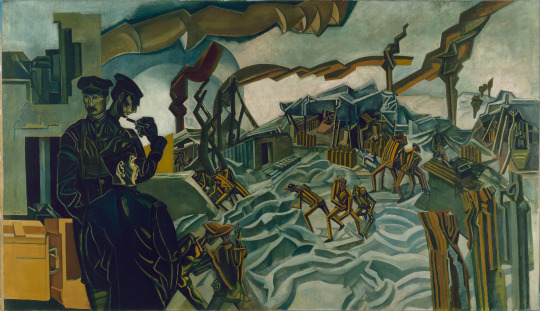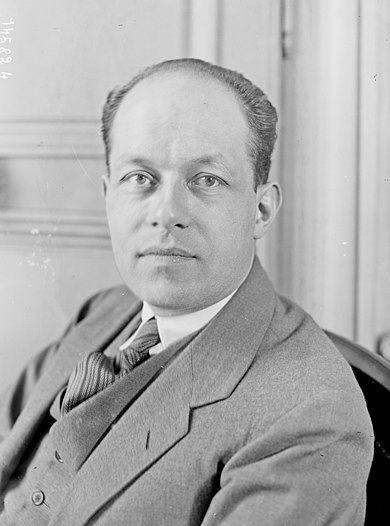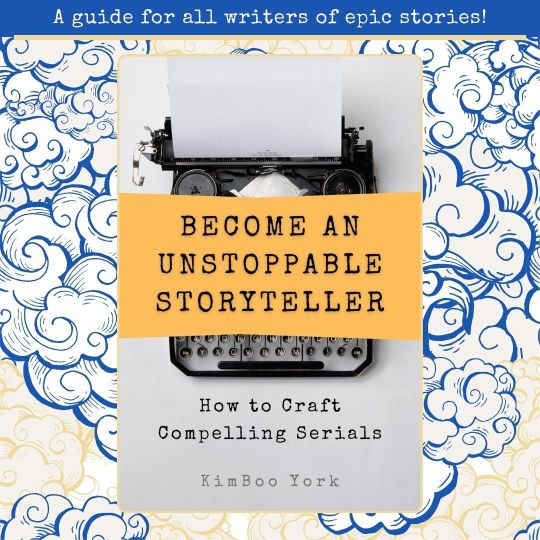#serialization
Explore tagged Tumblr posts
Text
Apple fucked us on right to repair (again)

Today (September 22), I'm (virtually) presenting at the DIG Festival in Modena, Italy. Tonight, I'll be in person at LA's Book Soup for the launch of Justin C Key's "The World Wasn’t Ready for You." On September 27, I'll be at Chevalier's Books in Los Angeles with Brian Merchant for a joint launch for my new book The Internet Con and his new book, Blood in the Machine.

Right to repair has no cannier, more dedicated adversary than Apple, a company whose most innovative work is dreaming up new ways to sneakily sabotage electronics repair while claiming to be a caring environmental steward, a lie that covers up the mountains of e-waste that Apple dooms our descendants to wade through.
Why does Apple hate repair so much? It's not that they want to poison our water and bodies with microplastics; it's not that they want to hasten the day our coastal cities drown; it's not that they relish the human misery that accompanies every gram of conflict mineral. They aren't sadists. They're merely sociopathically greedy.
Tim Cook laid it out for his investors: when people can repair their devices, they don't buy new ones. When people don't buy new devices, Apple doesn't sell them new devices. It's that's simple:
https://www.inverse.com/article/52189-tim-cook-says-apple-faces-2-key-problems-in-surprising-shareholder-letter
So Apple does everything it can to monopolize repair. Not just because this lets the company gouge you on routine service, but because it lets them decide when your phone is beyond repair, so they can offer you a trade-in, ensuring both that you buy a new device and that the device you buy is another Apple.
There are so many tactics Apple gets to use to sabotage repair. For example, Apple engraves microscopic Apple logos on the subassemblies in its devices. This allows the company to enlist US Customs to seize and destroy refurbished parts that are harvested from dead phones by workers in the Pacific Rim:
https://repair.eu/news/apple-uses-trademark-law-to-strengthen-its-monopoly-on-repair/
Of course, the easiest way to prevent harvested components from entering the parts stream is to destroy as many old devices as possible. That's why Apple's so-called "recycling" program shreds any devices you turn over to them. When you trade in your old iPhone at an Apple Store, it is converted into immortal e-waste (no other major recycling program does this). The logic is straightforward: no parts, no repairs:
https://www.vice.com/en/article/yp73jw/apple-recycling-iphones-macbooks
Shredding parts and cooking up bogus trademark claims is just for starters, though. For Apple, the true anti-repair innovation comes from the most pernicious US tech law: Section 1201 of the Digital Millennium Copyright Act (DMCA).
DMCA 1201 is an "anti-circumvention" law. It bans the distribution of any tool that bypasses "an effective means of access control." That's all very abstract, but here's what it means: if a manufacturer sticks some Digital Rights Management (DRM) in its device, then anything you want to do that involves removing that DRM is now illegal – even if the thing itself is perfectly legal.
When Congress passed this stupid law in 1998, it had a very limited blast radius. Computers were still pretty expensive and DRM use was limited to a few narrow categories. In 1998, DMCA 1201 was mostly used to prevent you from de-regionalizing your DVD player to watch discs that had been released overseas but not in your own country.
But as we warned back then, computers were only going to get smaller and cheaper, and eventually, it would only cost manufacturers pennies to wrap their products – or even subassemblies in their products – in DRM. Congress was putting a gun on the mantelpiece in Act I, and it was bound to go off in Act III.
Welcome to Act III.
Today, it costs about a quarter to add a system-on-a-chip to even the tiniest parts. These SOCs can run DRM. Here's how that DRM works: when you put a new part in a device, the SOC and the device's main controller communicate with one another. They perform a cryptographic protocol: the part says, "Here's my serial number," and then the main controller prompts the user to enter a manufacturer-supplied secret code, and the master controller sends a signed version of this to the part, and the part and the system then recognize each other.
This process has many names, but because it was first used in the automotive sector, it's widely known as VIN-Locking (VIN stands for "vehicle identification number," the unique number given to every car by its manufacturer). VIN-locking is used by automakers to block independent mechanics from repairing your car; even if they use the manufacturer's own parts, the parts and the engine will refuse to work together until the manufacturer's rep keys in the unlock code:
https://pluralistic.net/2023/07/24/rent-to-pwn/#kitt-is-a-demon
VIN locking is everywhere. It's how John Deere stops farmers from fixing their own tractors – something farmers have done literally since tractors were invented:
https://pluralistic.net/2022/05/08/about-those-kill-switched-ukrainian-tractors/
It's in ventilators. Like mobile phones, ventilators are a grotesquely monopolized sector, controlled by a single company Medtronic, whose biggest claim to fame is effecting the world's largest tax inversion in order to manufacture the appearance that it is an Irish company and therefore largely untaxable. Medtronic used the resulting windfall to gobble up most of its competitors.
During lockdown, as hospitals scrambled to keep their desperately needed supply of ventilators running, Medtronic's VIN-locking became a lethal impediment. Med-techs who used donor parts from one ventilator to keep another running – say, transplanting a screen – couldn't get the device to recognize the part because all the world's civilian aircraft were grounded, meaning Medtronic's technicians couldn't swan into their hospitals to type in the unlock code and charge them hundreds of dollars.
The saving grace was an anonymous, former Medtronic repair tech, who built pirate boxes to generate unlock codes, using any housing they could lay hands on to use as a case: guitar pedals, clock radios, etc. This tech shipped these gadgets around the world, observing strict anonymity, because Article 6 of the EUCD also bans circumvention:
https://pluralistic.net/2020/07/10/flintstone-delano-roosevelt/#medtronic-again
Of course, Apple is a huge fan of VIN-locking. In phones, VIN-locking is usually called "serializing" or "parts-pairing," but it's the same thing: a tiny subassembly gets its own microcontroller whose sole purpose is to prevent independent repair technicians from fixing your gadget. Parts-pairing lets Apple block repairs even when the technician uses new, Apple parts – but it also lets Apple block refurb parts and third party parts.
For many years, Apple was the senior partner and leading voice in blocking state Right to Repair bills, which it killed by the dozen, leading a coalition of monopolists, from Wahl (who boobytrap their hair-clippers with springs that cause their heads irreversibly decompose if you try to sharpen them at home) to John Deere (who reinvented tenant farming by making farmers tenants of their tractors, rather than their land).
But Apple's opposition to repair eventually became a problem for the company. It's bad optics, and both Apple customers and Apple employees are volubly displeased with the company's ecocidal conduct. But of course, Apple's management and shareholders hate repair and want to block it as much as possible.
But Apple knows how to Think Differently. It came up with a way to eat its cake and have it, too. The company embarked on a program of visibly support right to repair, while working behind the scenes to sabotage it.
Last year, Apple announced a repair program. It was hilarious. If you wanted to swap your phone's battery, all you had to do was let Apple put a $1200 hold on your credit card, and then wait while the company shipped you 80 pounds' worth of specialized tools, packed in two special Pelican cases:
https://pluralistic.net/2022/05/22/apples-cement-overshoes/
Then, you swapped your battery, but you weren't done! After your battery was installed, you had to conference in an authorized Apple tech who would tell you what code to type into a laptop you tethered to the phone in order to pair it with your phone. Then all you had to do was lug those two 40-pound Pelican cases to a shipping depot and wait for Apple to take the hold off your card (less the $120 in parts and fees).
By contrast, independent repair outfits like iFixit will sell you all the tools you need to do your own battery swap – including the battery! for $32. The whole kit fits in a padded envelope:
https://www.ifixit.com/products/iphone-x-replacement-battery
But while Apple was able to make a showy announcement of its repair program and then hide the malicious compliance inside those giant Pelican cases, sabotaging right to repair legislation is a lot harder.
Not that they didn't try. When New York State passed the first general electronics right-to-repair bill in the country, someone convinced New York Governor Kathy Hochul to neuter it with last-minute modifications:
https://arstechnica.com/gadgets/2022/12/weakened-right-to-repair-bill-is-signed-into-law-by-new-yorks-governor/
But that kind of trick only works once. When California's right to repair bill was introduced, it was clear that it was gonna pass. Rather than get run over by that train, Apple got on board, supporting the legislation, which passed unanimously:
https://www.ifixit.com/News/79902/apples-u-turn-tech-giant-finally-backs-repair-in-california
But Apple got the last laugh. Because while California's bill contains many useful clauses for the independent repair shops that keep your gadgets out of a landfill, it's a state law, and DMCA 1201 is federal. A state law can't simply legalize the conduct federal law prohibits. California's right to repair bill is a banger, but it has a weak spot: parts-pairing, the scourge of repair techs:
https://www.ifixit.com/News/69320/how-parts-pairing-kills-independent-repair

Every generation of Apple devices does more parts-pairing than the previous one, and the current models are so infested with paired parts as to be effectively unrepairable, except by Apple. It's so bad that iFixit has dropped its repairability score for the iPhone 14 from a 7 ("recommend") to a 4 (do not recommend):
https://www.ifixit.com/News/82493/we-are-retroactively-dropping-the-iphones-repairability-score-en
Parts-pairing is bullshit, and Apple are scum for using it, but they're hardly unique. Parts-pairing is at the core of the fuckery of inkjet printer companies, who use it to fence out third-party ink, so they can charge $9,600/gallon for ink that pennies to make:
https://www.eff.org/deeplinks/2020/11/ink-stained-wretches-battle-soul-digital-freedom-taking-place-inside-your-printer
Parts-pairing is also rampant in powered wheelchairs, a heavily monopolized sector whose predatory conduct is jaw-droppingly depraved:
https://uspirgedfund.org/reports/usp/stranded
But if turning phones into e-waste to eke out another billion-dollar stock buyback is indefensible, stranding people with disabilities for months at a time while they await repairs is so obviously wicked that the conscience recoils. That's why it was so great when Colorado passed the nation's first wheelchair right to repair bill last year:
https://www.eff.org/deeplinks/2022/06/when-drm-comes-your-wheelchair
California actually just passed two right to repair bills; the other one was SB-271, which mirrors Colorado's HB22-1031:
https://leginfo.legislature.ca.gov/faces/billNavClient.xhtml?bill_id=202320240SB271
This is big! It's momentum! It's a start!
But it can't be the end. When Bill Clinton signed DMCA 1201 into law 25 years ago, he loaded a gun and put it on the nation's mantlepiece and now it's Act III and we're all getting sprayed with bullets. Everything from ovens to insulin pumps, thermostats to lightbulbs, has used DMCA 1201 to limit repair, modification and improvement.
Congress needs to rid us of this scourge, to let us bring back all the benefits of interoperability. I explain how this all came to be – and what we should do about it – in my new Verso Books title, The Internet Con: How to Seize the Means of Computation.
https://www.versobooks.com/products/3035-the-internet-con


If you'd like an essay-formatted version of this post to read or share, here's a link to it on pluralistic.net, my surveillance-free, ad-free, tracker-free blog:
https://pluralistic.net/2023/09/22/vin-locking/#thought-differently

Image: Mitch Barrie (modified) https://commons.wikimedia.org/wiki/File:Daytona_Skeleton_AR-15_completed_rifle_%2817551907724%29.jpg
CC BY-SA 2.0 https://creativecommons.org/licenses/by-sa/2.0/deed.en
--
kambanji (modified) https://www.flickr.com/photos/kambanji/4135216486/
CC BY 2.0 https://creativecommons.org/licenses/by/2.0/
--
Rawpixel (modified) https://www.rawpixel.com/image/12438797/png-white-background
#pluralistic#vin locking#apple#right to repair#california#ifixit#iphones#sb244#parts pairing#serialization#dmca 1201#felony contempt of business model#ewaste#repairwashing#fuckery
1K notes
·
View notes
Text

!!!! The chapter that goes along with this incredible art (created by @sabinalewis) goes live tomorrow at https://inkdrift.substack.com/
#writing#scifiart#scifi#sci fi and fantasy#writers#serialized fiction#serialization#space#outer space
37 notes
·
View notes
Text
While it is interesting to bemoan the lack of filler for a chance...
...I'm not sure if that makes for a good conversation about pacing.
See, I often want to just a show based less on what it could be if XYZ external factors were different like how many episode per season.
Can they convey the stories they wish to tell within 26 episodes per season or 13 episode per season? 10 can seem pretty tight and is becoming the norm.
There's also how some shows seem keen to, rightfully, assume that their show will be lucky to make two seasons. Thus there will likely be a sense that a plotline that could've been delegated for a future season but too many are aware of how companies are allergic to paying taxes like "peasents.
Even so.
While we can take Streaming to task for not giving show even the bare minimum of thirteen episodes, what I care about it how well the creative teams manage with the hand they are dealt with.
Can this "eight hour movie" pace itself well?
Can it feel like a chapter book where its it real page-turner?
Does it know what ideas are important to keep?
Can it give itself time for the characters to just be before the next big plot beat?
Can it juggle characterization with plot progression? A lot of stories are actually more about a character's decisions than just things that happen to them.
I get that good pacing is something terribly hard to judge when pacing itself is only noticeable when it's bad, when it jars you out of the immersion of storytelling. But I feel like if we want to appreciate storytelling better, I think we need to actively be more conscious about these sort of things.
#netflix#hulu#disney+#amazon prime#storytelling#pacing#writing#on writing#television#television writing#episodic fiction#serialization#plot progression#characterization#characters#characters vs plot#streaming services#filler#filler episodes
16 notes
·
View notes
Text
I feel like serialized shows can have filler too. And no, it's not an episode where nothing happens. Frankly, it's an episode that's so focused on setting stuff up and being a PART of a story, rather than feeling like an actual episode, is where it kind of feels like filler too. Yes, things are happening and you can't really skip it, but if it's all just set up with no real conclusion, than you did nothing but fill an episode with story BEATS rather than a story itself.
I guess you can say it's not technically filler, but it has the same spirit as filler. At least to me it does.
12 notes
·
View notes
Text
In my book Become an Unstoppable Storyteller, I trace the fascinating evolution of storytelling from its earliest oral traditions to the dynamic digital narratives of the modern era. Storytelling has always been an intrinsic part of human culture, with each era bringing its own innovations to how stories are told. Ancient bards captivated villages with epic tales of gods and heroes, while today's storytellers hook readers in with serialized novels published one chapter at a time online.
My book explores how the digital revolution has transformed storytelling, making it more accessible and interactive than ever before and teaches you how to leverage those skills in your storytelling. By examining the journey from ancient oral epics to webnovels, I examine the enduring power of long-running stories and their ability to connect us across time and space and break down ways writers can capture that magic for your own stories!
#Serials#Serial Fiction#Serialization#Story Beats#Story Craft#Writing Craft#Writing Advice#Writing#Author
13 notes
·
View notes
Text
Fragments Pt. 2
We now return you to your regularly scheduled-ish postings. Tyrus has a lot to sort through.
Arcane Invesitations is written by @girlsbyte and @gigabytecat.
Any resemblance to other works of fiction, people living and/or dead, places etc is purely coincidental. Story starts after the jump
He had several books in his bag right now, and a good deal of packets of information from the librarian to take home and keep. He’d be dropping by his ranch, where he worked on his more volatile school work, to keep the books and pamphlets there, where his family almost never went.
Frowning, Catherine motioned for Tyrus to take a seat in the chair. She stood up to close the door behind him. “Well, from what I’ve heard, the Cahokia’s librarians aren’t wrong.” She said as she returned to her seat, and met his eyes again, worried.
“Are you okay, though? That’s a lot,” Catherine asked him. Adoption wasn’t uncommon in the Unseen. It was rare that kids were ever homeless, or without a family. If extended family didn’t take a child in, a friend of the parents often would, and if that didn’t happen, werewolf packs adored children and big families, and would happily take in complete strangers, regardless of age.
“I’ve never heard of them being wrong once.” Tyrus agreed and tugged on his braid again. “I’ll probably head to my ranch for a bit after this case to decompress some, but I can make it through the case… and I’m not okay, but I think I will be. It’s not like I didn’t know I was adopted of a sort, though. I just knew I was some sort of brown, and it’s not like I’d ever get to learn the specifics.”
Catherine grimaced, knowing that the Unseen wouldn’t let a child go to the vampire courts willingly, especially not to the couple that led one of the most influential courts in the New World. Tyrus sighed.
“I’m not going to look into it. If I look into things, it’s been made clear that my birth parents would pay the price.” The vampire courts were like that, and it was an open secret. But the council had needed to give the vampires concessions, in order to convince them to keep the secret as well. One of them was autonomy from many of the laws the Council was supposed to enforce.
The Sun Court was not known for being subtle or kind about its desires. Keeping the parents alive to hold them against Tyrus’ behavior wasn’t unexpected, though she wondered if they had been left alone when he had run far from his family.
“That’s disturbing and concerning.” She commented. “If you need to take time, I understand. I’m sure we’ll be able to function well enough. James should be back to 100% soon enough.” The team was still incredibly short handed, but Tyrus was there as a contractor. A member of the team would have to sign off on his work, anyway.
“After this case.” He said firmly. “I can hold it together that long. Besides, you’ll need some sort of bait, won’t you? Why not the man who matches the victim profile so closely? I’m an alcoholic and I know it, after all.” He was the best choice of the team members, and they both knew it. "I’m a functional alcoholic and can fake being a good deal drunker than I usually am. Dump some beer down my front as well, and even if I’ve only had a few sips, I’ll reek of more." He suggested. The team also didn’t have any other male team members that could dodge anything right now.
“I want you to tell me the moment you can’t, because we don’t need that.” Catherine said. It would add fuel to whatever fire had been lit under Klein to assemble this fucked up team. Government politics at its finest, as usual.
“And yes, we need bait, but I never would have suggested you.” She then lied. Tyrus fit the profile perfectly, and no one else on the team did at all. Bringing in a straight up civilian would have been a terrible idea. Tyrus came with the complication of the Sun Court breathing down their necks if anything went wrong, but that wasn’t something Catherine hadn’t faced before. “Also, isn’t that suicidal? I’ve known you to lack impulse control, but this is a bit much.”
At that, Tyrus grinned widely, clearly pleased with himself. "I’ve thought about that. There’s this spell used to keep anyone from touching you." His parents had used it on him as a child when he misbehaved in their eyes. "I thought I could have, say, a one foot distance on it, to account for feather length. It’s a pretty rare spell, and it takes a chunk of power for it, but I’ve got the power easily."
He didn’t address the suicidal comment.
"I’ll be about as safe as I can be as bait." He declared.
Catherine sighed and rubbed the bridge of her nose. This was looking like Huntsville all over again. “Of course you know a spell.” She grumbled, half under her breath. "Just don’t go off on your own half-baked again, please?" Huntsville had been a bit of a disaster for everyone involved. Necromancers with child victims always were.
"I know a lot of spells. All that education has to be good for something, after all." Tyrus was more than a little over-educated, and had been the youngest qualifier for the title of Mage in recorded history. He would absolutely preen like a peacock if that was brought up, too. He had busted his ass to get the qualifications. "Besides, if I don’t know a spell, creating one isn’t overly difficult, though, given the stakes, I would prefer to avoid it here."
Catherine frowned darkly. “Let’s hope it doesn’t come to those stakes,” she said bluntly. High stakes cases were not something either of them wanted to be as intimately familiar with as they were. But this had been one since the beginning, given they had lost an entire team to the creature, even as short staffed as they were now. “Because creating magic out of whole cloth is dangerous business.”
No one needed to risk themselves like that. They often never came back.
#female writers#urban fantasy#writerscommunity#writing#creative writing#arcane investigations#writblr#disabled writers#serialized fiction#serialized novel#serialization
2 notes
·
View notes
Text



I know I'm late to the party but ...
I just realized that Boku Ga Koisuru Cosmic Star got axed ...
I'm really growing tired that amazing pieces like this get stopped right when it's getting interesting, whereas dumpster trucks on fire like Rent a Girlfriend are on their 400th chapter with 3 anime seasons ...
#boku ga koisuru cosmic star#axed#manga#i am legit fuming#serialization#corpo shit#anime and manga#anime#heriyama
4 notes
·
View notes
Text

What are autoboxing and unboxing? . . . . For more questions about Java https://bit.ly/3kw8py6 Check the above link
#wrapperclass#boxing#unboxing#objectcloning#serialization#externalizable#IOstream#finalize#runtimeclass#anonymousinnerclass#localinnerclass#memberinnerclass#interface#garbagecollector#polymorphism#java#constructor#thiskeyword#computersciencemajor#javatpoint
2 notes
·
View notes
Text
Gilles, by Pierre Drieu La Rochelle

Pierre Drieu La Rochelle was a french author of more than a dozen novels and numerous essays and poetry collections. A relentless critic of the French Third Republic, he drifted in every political and artistic current of his time, going from surrealism to socialism to fascism, he refused to ever be tied down to any single movement or ideology. As a surrealist, he traveled in the same circles as Louis Aragon, Gaston Bergery, and André Breton, but eventually fell out with the group over a love dispute. As a Socialist, he briefly flirted with pacifism and was involved with early-pan Europeanist movements, that would later go on to influence the founding of the European Union, however he found the Socialism of Paris entirely too Bourgeoisie, and drifted towards more reactionary ideas, eventually publishing a synthesis of his political thought titled Socialisme fasciste. As a collaborator during the German occupation of France, he petitioned for the release of Jean-Paul Sartre (among other intellectuals) from prison, and helped Jean Paulhan escape capture by the Nazis. For La Rochelle, the turbulent politics of his time were subsumed by an aesthetic disgust with bourgeoisie life, and this theme is present in all of his works. At the end of the war, hiding at the house of his friend André Malraux, he committed suicide by swallowing poison.

Best known in the English speaking world for his book Le Feu Follet, which was adopted into an acclaimed French nouvelle-vague film, Pierre Drieu La Rochelle considered the semi-autobiographical Gilles to be his greatest work. The acclaimed literary critic Gaëtan Picon wrote that Gilles “is, without any doubt, one of the greatest novels of the century—and one of those books in which the disarming sincerity of a man rises to the grandeur usually reserved to literary transpositions.”
The novel begins during the First World War, where the hero Gilles returns from the front after being badly wounded, his regiment having been decimated. Penniless, he asks his friends, the wealthy Falkenberg brothers, for help, only to discover that both of them had died. Their sister, Myriam, falls in love with him and helps him financially; although he does not respond to her love, Gilles accepts her support. He even decides to marry her when her father's death makes her a wealthy heiress. The day after the wedding, he leaves her, joins the army again and has a love affair with a nurse, whom he in turn leaves.After the war, Gilles frequented social circles and profited from his ex-wife's money. More or less unwillingly, he is drawn into a plot against the President of the Republic, Morel, after making friends with Morel's son-in-law, Gilbert de Clérences, and meeting Caël, the leader and almost guru of a dandy political group. The ridicule of intellectuals, the grotesquerie of events, the cowardice and demagoguery of politicians—compounded by the departure of Dora, an American girl he loved—leads him to leave France and seek refuge in Algeria. There he meets a simple, wholesome young girl, Pauline, with whom he experiences a true love affair for the first time. Gilles returns to Paris, however. Still disgusted with society and politics, he starts a newspaper and, after 6 February 1934, decided to join the only ideology capable of radically changing society and regenerating France: Fascism. After the death of Pauline and the child she was expecting, Gilles chooses to be alone, and joins Franco's side in the Spanish Civil War.

Despite his immense standing in the French inter-war literary scene, and his close relations with many of the most prominent writers and intellectuals of his time, Pierre Drieu La Rochelle has, because of his politics, been largely ignored by the Anglo literary establishment. His masterpiece, Gilles, has gone untranslated for the last seventy years… until now. Tikhanov Library has released the first three chapters of Gilles on substack, and is releasing the novel in serialized. We are adding new chapters every week, for free, to the public. You can read the first chapter here:
Tikhanov Library is an independent publishing company founded in Lund, British Columbia. To read Gilles and many other books, both reprints and new releases, visit our website at www.tikhanovlibrary.com | Our catalogue includes books by Alexis de Tocqueville, Dimitri Alioshin, and F.T. Marinetti, among other authors. We are constantly updating our catalog with new books and deals.
#Gilles#Pierre Drieu La Rochelle#French Literature#Translation#Dark Academia#nouvelle vague#le feu follet#Serialization#Literature#Novel#WW1#Interwar#Surrealism#Socialism
5 notes
·
View notes
Text

did… did she do that?
#WHY R ALL THESE ARTICLES ABT THE NEW ENGLAND SERIAL KILLER MENTIONING HER. FOR CLICKS?#i feel like its for clicks. i dont think taylor swift has murdered anybody#text#ask to tag
24K notes
·
View notes
Text
in case you're wondering what the greatest AMV of all time is, it's this one from 2008.
#video#serial experiments lain#this is related to TWO different things ive posted about today#which is serial experiments lain and gay bar by electric six#and it reminded me of this
71K notes
·
View notes
Text
will graham was pushing 40 when he bagged a hot european sugar daddy. never kill yourself
8K notes
·
View notes
Text
A while ago I was talking to my therapist and I told her I was worried that I was creepy and invasive with relationships. She asked me what I meant.
I told her, "Well, when I'm interested in someone, I try and find out what they like, and if it's something I don't like, then I do a bunch of research and write notes and stuff and explore the topic until I find something I *do* like. And I'm worried that that's weird or stalker-y. But like... I've found a bunch of stuff I still enjoy after the interest in them has faded. So is that okay, or is it creepy?"
And she stared at me for a minute before saying, "That sounds very sweet of you, actually"
And so yeah
Self-perception and shit
#In hindsight it makes sense#But like I was SO WORRIED I was some kind if serial stalker#But no#That's just what people do#My parents just didn't like each other#Lmaooooo
22K notes
·
View notes
Text
#blockchain#serialization#digitalidentity#nfc#rfid technology#printed electronics market#brand protection
0 notes
Text

Unveiling the Secrets of Serialized Novels!
Delve into the heart of storytelling with a journey that spans millennia! Why have tales like those of Scheherazade endured through centuries, captivating audiences with their intricate webs of narrative?
My exploration takes you from ancient storytelling to today's web novels, unraveling the timeless appeal of serialized stories. Become an Unstoppable Storyteller is your gateway to understanding how serials have mesmerized audiences, using suspense, cliffhangers, and complex characters to weave stories that extend far beyond the constraints of traditional novels.
With detailed analyses and captivating examples, I illuminate the path for today's storytellers to craft their own unforgettable serials. Begin your journey into the heart of serialization and discover the art of creating stories that live on through the ages!!!
CHECK IT OUT!
#Serials#Serial Fiction#Serialization#Story Beats#Story Craft#Writing Craft#Writing Advice#Writing#Author
9 notes
·
View notes